My Role in Helping to Establish Israel
MARCH 1948
I was a sixth-form 17-year old Manchester Grammar School pupil, very Jewish and excited about the soon-to-be Jewish state. Resolving to be part of it, I quit school in mid-term and made plans to volunteer and make my way to Palestine. I joined an organization called the Jewish Legion at a cost of seven shillings and sixpence, was interviewed, given a perfunctory medical examination and a list of what I would need to take with me. On the list was a water bottle and I am sure I was the only Machal volunteer to have a HOT water bottle with him. My parents amazingly accepted my decision and did not try to influence me to change my mind.
APRIL 1948
Following the instructions of the Jewish Legion organizers, I traveled by train to Paris and then to Marseilles, the journey's details lost in the past. I somehow arrived and was taken to a place called Trets in the mountains where there was an assembly and transit camp for Holocaust survivors and volunteers from England and other countries. I underwent some military training with sticks as rifles and stones as grenades and also learnt how to take a Sten gun to pieces, but never fired one.
Several weeks went by until, in a convoy of trucks cheered on by French villagers, we were taken to Port du Bouc, loaded onto a fishing boat named Marie Anik. The conditions on board, sleeping arrangements, toilets and food (sardines and 'dog' biscuits) were not the best but I don't remember any complaints. The journey to Palestine took ten days with an engine breakdown off the coast of Corsica - with the necessary parts brought from Bonifacio. We were not allowed to appear on deck while the repairs were being made. During the journey, in case of sighting by a British plane or warship we were given exercises on how to disappear quickly below deck.
We finally anchored off Jaffa. The next stop was Beit Lid where, when interviewed, I asked to join the navy. As I had no military experience, my request was accepted and I was sent to a camp near Apollonia where I met Dave Fisher from Birmingham.
He was four years older than me and had served in the Merchant Navy. We were sent to Haifa and at naval headquarters received our first assignment - raising and lowering the defense boom at the entrance to Haifa harbor. Sometime later, we were assigned to the Ben Hecht", a former immigrant ship which was to be reconditioned as a warship. The Ben Hecht, renamed Maoz" or K24, had been a private yacht that had carried out smuggling operations in the Spanish Civil War and had later served the US navy on coastal patrols.
Due to his experience, Dave was given officer status and I became a 'do-as-you-are told' ordinary seaman, deck boy, machine gunner, and later a radar operator. There were quite a few English speakers in the crew.
The K24 was equipped with one canon and several machine guns. It later carried four motor-torpedo boats armed with explosives which were used in an action off the coast of Gaza in which the Egyptian flagship, "Emir Faroukand", a minesweeper, was sunk. Three motor torpedo boats were piloted by navy volunteers and directed at the enemy ships. The pilots were ejected and picked up by a fourth boat. The leader of the attack, Yochanan Bin Nun, received Israel's highest military medal and later became the commander of the Israeli Navy.
Other experiences were a brief naval battle off Tel Aviv and the towing of a ship which had broken down while carrying military supplies during a very violent storm. Most of the crew were seasick, and it was left to the native English speakers to do the necessary.
Those were some of the highlights, but there was also the more routine work of patrols along the coast of Gaza, Israel and Lebanon - the longest-lasting three weeks.
The commander of the navy was Paul Shulman, an American, and the captain of the K24 was Milo Brenner, a Canadian.
Ben-Gurion honored the fleet with a visit, and half of my face appears in one photograph.
I served thirteen months on the K24 and when the War of Independence ended, Dave Fisher and I were demobbed and given a civilian outfit and demobilization pay. We left for Marseilles on the Kedmah, the first Israeli passenger ship.
In Marseilles, I phoned my parents and was told to come home. I was eighteen years old, and on arrival in England with my passport which had been returned to me, I was informed by the port police officer who checked it that I would be hearing from the authorities very soon. Within two weeks I began two years compulsory service in His Majesty's Armed Forces.
When released, I studied languages at Manchester University, graduating in 1954, and then worked in a wholesale food business for a couple of years to save money for a trip to Israel. The desire to make aliyah never left me, and visiting Israel and volunteering on a kibbutz in 1957 made it stronger. I finally made aliyah in January 1962. I am still here, a retired school teacher, with my wife Doreen, two married daughters, two married sons and twelve grandchildren aged from 2 to 28 years old.
Incidentally my parents, one sister and two brothers eventually made aliyah too.



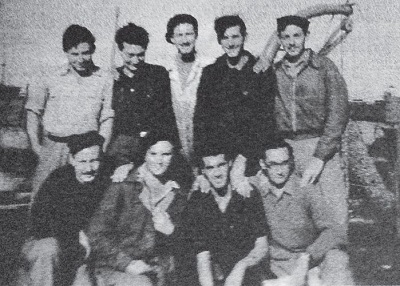
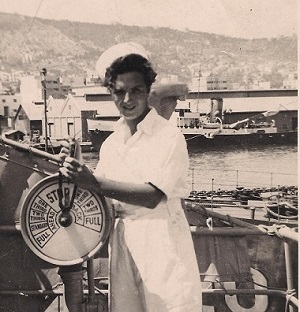
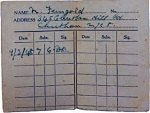
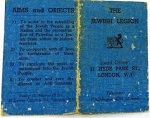
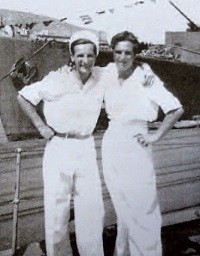
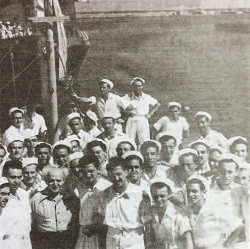




Comments